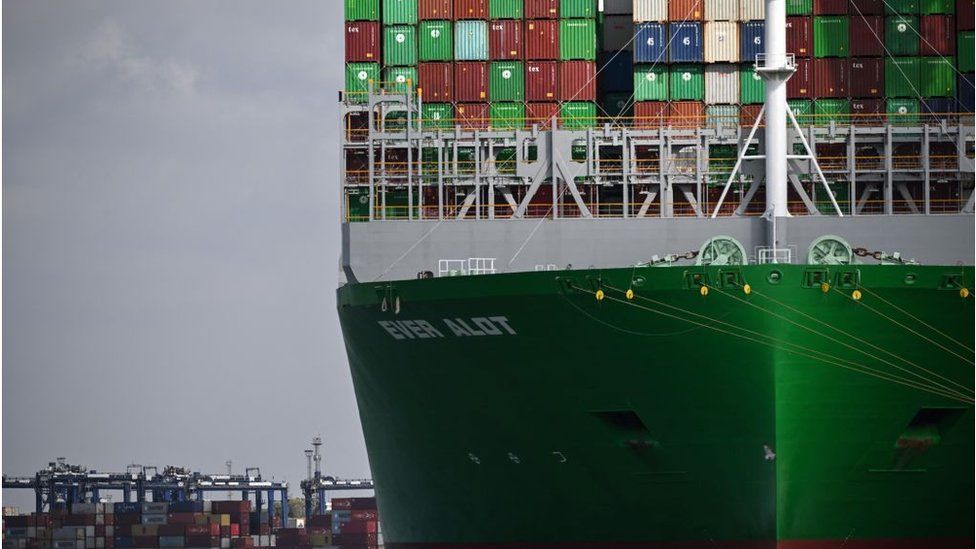Brexit created frictions in trade, says work and pensions secretary Mel Stride
- Published
- comments

Brexit created "frictions" in trade that impacted the UK economy, Work and Pensions Secretary Mel Stride has said.
The senior Tory told the BBC the UK's exit from the EU had brought "major opportunities" but they were taking time to appear.
It comes as Jonathan Haskel, a Bank of England policymaker, said investment in the UK had "stopped in its tracks" after Brexit.
He estimated it had deprived the economy of around £29bn in lost growth.
The Treasury has said it doesn't recognise the figures quoted for lost growth in the economy.
Asked if Brexit had had an impact on investment in the UK, Mr Stride said: "If you have a situation where you create frictions between yourself and your major trading partners I think you have to accept that will have an impact.
"What I think we need to do now is maximise the benefits of the freedoms we now have, given that we're not part of the European Union."
Mr Stride, who campaigned to stay in the EU during the 2016 referendum, told BBC Radio 4's the World at One it was taking time to move from what he called "the disbenefits" to the benefits of Brexit.
He insisted the UK has strengths in its universities and skills base along with new trade deals it was determined to capitalise on.
But, speaking on the same programme, Paul Drechsler, who chairs the UK's International Chamber of Commerce, said the UK's departure from the EU and the subsequent political turmoil had also reduced the willingness of firms to invest in the UK.
Mr Drechsler, who previously advised Conservative Prime Minister David Cameron, also criticised the legislation the government has drafted to remove laws put in place during the UK's EU membership.
The Retained EU Law Bill was, he said, a new cause of uncertainty for investors.
"We're about to bin thousands of EU laws without having any alternative for business to rely on. At a time when businesses around the world have a choice about where to invest."
Mr Stride said the country had "moved on" from the Brexit debate and now needed to "get out there" and capitalise on the opportunities.
Related Topics
- Published13 February 2023
- Published10 February 2023